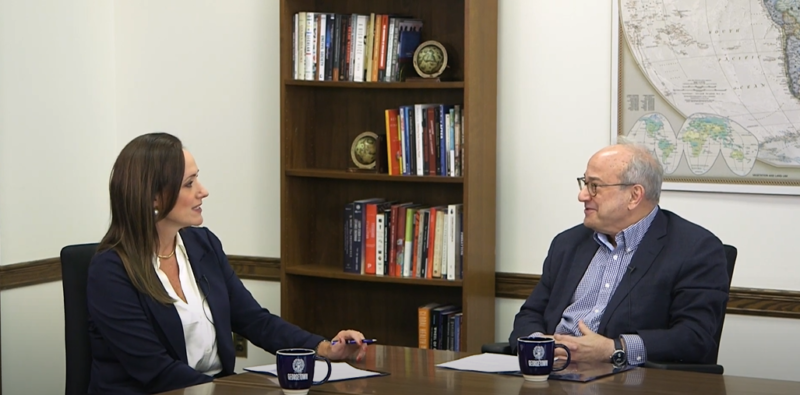Can Spain Solve the Cuba Problem?
By all accounts, Spain wants to bring change to the European Union’s Cuba policy. In so doing, it is tackling a foreign policy challenge that often sheds more heat than light.
In his interview with the Georgetown Americas Institute, Michael Shifter, president of the Inter-American Dialogue, talks with Muni Jensen, series host, about Latin America’s electoral agenda, the climate agenda, economic recovery, and his leadership at the Dialogue.
Question (Q): What type of recovery can we expect for Latin America and what are the tools that new leaders and the existing ones can use for a sustainable recovery?
Answer (A): It's going to be very hard to recover and what you need is to go back to the basics and fundamentals. Trying to focus more on education, on strengthening competitiveness, on trade opportunities where they exist, and infrastructure. The problem is that it's hard to govern situations where they are polarized when there’s a lot of mistrust between different political forces. So there’s an opportunity there, but it's going to be very difficult in almost all cases.
Q: Regarding the COP 26 Summit, there was a lot of talk about how the climate agenda poses opportunities for emerging markets, especially in Latin America, but it also poses significant risks. What is your assessment of this kind of risk?
A: Latin America does have enormous opportunities for renewable energy and the energy transition is possible. The problem is that we have a number of governments, especially the big countries, certainly Mexico and Brazil, which are still very much reliant on fossil fuels. There's still a lot of gain in the short term to invest in those in those more traditional energy sectors. And so, Latin America is lagging behind in that regard in terms of really embracing the climate change agenda.
Q: What do you think is the role of the private sector in the economic growth that is needed in Latin America?
A: Some in the private sector are very farsighted and have a vision and know that they need to be part of the solution which is addressing inequality, social demands, responding more effectively and doing their part because they know that these societies are not sustainable, and governance is not really viable unless you correct some of those big gaps in society. There are others who are not as far-sighted and have played a more traditional role. Doing well for the corporation and making money and investments and so forth is enough. Hopefully, that other private sector that has more of a vision about really looking in the long term will gain ground because otherwise, these societies are not going to be sustainable.
[...]
By all accounts, Spain wants to bring change to the European Union’s Cuba policy. In so doing, it is tackling a foreign policy challenge that often sheds more heat than light.
When Haiti was struck by a devastating earthquake, the administration of U.S. President Barack Obama quickly absorbed the depth of the tragedy and necessity of a robust U.S. response. Unless the U.S. adopts a proactive role, Haiti’s fragmented political landscape threatens to deteriorate into a political vacuum that will compound the current crisis.
Politics is swirling everywhere. Such are the ways of democracies, especially when oppositions come alive and defeat or threaten incumbents.
 Georgetown Americas Table / Georgetown University
Georgetown Americas Table / Georgetown University